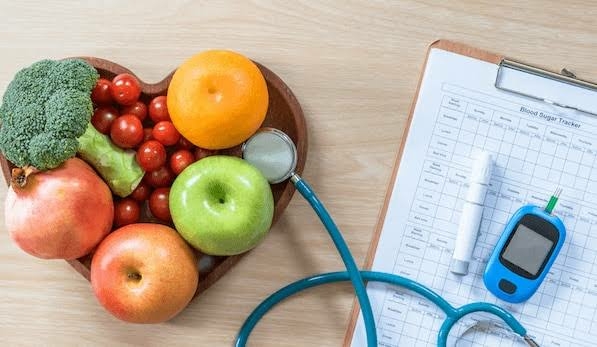According to Hajiya Zainab Shariff, Director Traditional, Complementary and Alternative Medicine, Federal Ministry of Health (FMoH), there are numerous herbs, fruits, and vegetables that can be used to effectively control diabetes.
Shariff stated this on Tuesday at the Nigeria Association of Pharmacists in Academia (NAPA) 2nd Public Lecture and Outreach at the University of Ilorin (UNILORIN).
Her paper was titled “Nigerian Herbs and Herbal Drugs Used in the Treatment of Diabetes.”
Shariff observed that, with the global prevalence of diabetes rising, it was critical to raise awareness about the chronic disease.

Preventive measures, such as early diagnosis, a healthy lifestyle, adequate dieting, and physical and mental exercises, she believes, must be prioritized.
She suggested eating vegetables, fruits, and herbs like bitter leaf, bitter kola, moringa, garlic, and neem leaves.
The pharmacist also suggested green plantain, purple yam, scent leaf, African walnut, onions, bitter garden egg, garden egg leave, ginger, and soya beans as diabetes supplements.
The expert urged diabetic patients not to give up hope and to continue following the pharmaceutical and non-pharmaceutical guidelines put in place to combat the disease.
Dr Nasir Sanni, a Fellow of the National Postgraduate Medical College of Nigeria, also recommended a healthy diet, regular physical activities, and smoking cessation in his paper presentation titled “Access to Diabetes Care: If Not Now, When?”
Sanni stated that diabetic patients and those wishing to avoid the disease should maintain a healthy body weight.
Sanni, also a Consultant Physician and Endocrinologist at the University of Ilorin Teaching Hospital (UITH), advised diabetics and those at risk to avoid sugary beverages.
He stated that this would assist them in controlling their weight and lowering their risk of cardiovascular disease, as well as minimizing the consumption of food with added sugar.
“It has been proven that if you consume too much food with added sugar, you are prone to gaining weight, and by gaining weight, you are prone to diabetes,” he said.
According to Nasir, citing the Global Burden of Diabetes, the 2019 projection indicated that Africa would go from 20 million diabetes cases to 29 million by 2030.
“This means that the prevalence of diabetes will rise by more than 10 million.”
Sanni noted that 24 million diabetes cases had already been reported in Africa within two years, implying that the rate would exceed the 2019 projection.
He advocated for access to diabetes education, preventive strategies, and diagnosis.
“There should be a mechanism in place to ensure that people are screened for diabetes early and have access to basic drugs, which is a major challenge,” he said.
Mr Rahmon Bioku, Fellow of the Pharmaceutical Society (FPSN), congratulated NAPA on organizing the public lecture and outreach.
He stated that the program’s goal was to raise diabetes awareness among people who had the disease but were unaware of it, as well as “those who know but do not have access to drugs.”
Bioku advocated for all people in the healthcare sector, including doctors, pharmacists, and nurses, to work together and close ranks to defeat diabetes.
Prof. Sulyman Abdulkareem, Vice-Chancellor of UNILORIN, encouraged Nigerians to live healthy lifestyles, exercise more, watch their diets, and visit medical centers for medical check-ups on a regular basis in order to be healthy.
The Vice-Chancellor, who was represented by Dr Mohammed Amali, Acting Dean of the University’s Faculty of Pharmaceutical Sciences, bemoaned the rise in sugary drink consumption among Nigerians.
Abdulkareem urged the government to increase health funding so that individuals can receive diabetes treatment and organizations and non-governmental organizations (NGOs) can raise awareness.
Diabetes outreach on blood glucose and blood pressure checks, as well as a diabetes health fair and exhibition, are among the event’s highlights.

















Discussion about this post